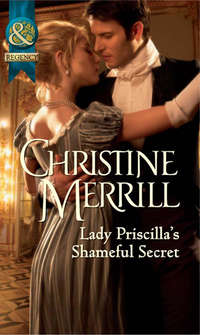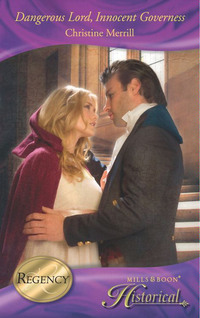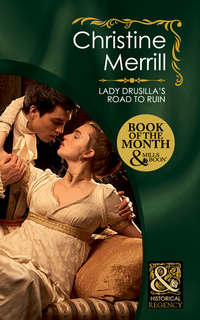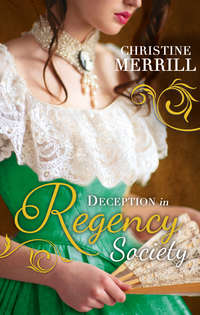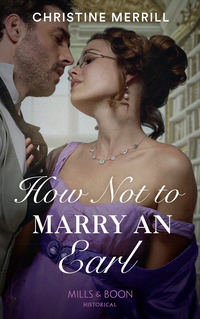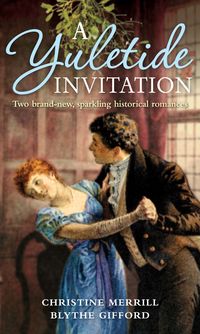
Полная версия
One Snowy Regency Christmas: A Regency Christmas Carol / Snowbound with the Notorious Rake
Her father looked with longing at the book in his hands.
Joseph Stratford responded without missing a beat. ‘I hate to take you from your reading, sir. Please accept the volume as my gift to you. You are welcome to come here whenever you like and avail yourself of these works. It pleases me greatly to see them in the hands of one who enjoys them.’
Because you have no use for them, you illiterate lout, she thought. She responded with a smile that was almost too bright, ‘How thoughtful of you, Mr Stratford.’
Her father agreed. ‘Books are a precious commodity in the area, and it is rare that we get anything new from London that is not a newspaper or a fashion plate.’ He wrinkled his nose at the inadequacy of such fare to a man of letters.
Stratford nodded in sympathy. ‘Then we will see what can be done to correct the deficiency. If there is anything you desire from my library, send word. I will have it delivered to you. And now it appears that your daughter is properly recovered. If I may offer you a ride back to the village?’
Her father stood, and the men chatted as they walked to the door as though they were old friends. In a scant hour Bernard Lampett had quite recovered from his fit of rage, and Mr Stratford was behaving as though the incidents in the mill and in the hall had not occurred. If he remembered them at all, he appeared untouched by them.
But in the space of that same hour Barbara felt irrevocably changed, and less sure of herself than she had ever been.
CHAPTER FIVE
LATER that evening the guests began to arrive, and Joseph was relieved to have no time to think of Barbara Lampett. Even when he should have focused his energy elsewhere, he could feel the memory of her and her sweet lips always in the background. It had been madness to take her out into the hall. He had known that he could not fully trust himself around her. When they were alone he should have limited himself to urging her to moderate her father’s actions. But he’d had the foolish urge to show her his house, so that she might see the extent of his success. There might even have been some notion of catching her under a kissing bough and stealing one small and quite harmless kiss. He had been eager to impress her, and had behaved in a way that was both foolish and immature.
All of it had got tangled together in an argument, ending with a brief and heated display of shared emotion. It had been as pleasant as it had inappropriate. While such little indiscretions happened all the time, ladies like Barbara Lampett did not like to think themselves capable of them. She would not wish to be reminded, nor to risk a repeat display. He would not see her again.
And that was that.
He turned his attention to more important matters. After the rejections in today’s post, it appeared that his house would be barely half-full for Christmas. There had been several frosty refusals to the offer of a trumped-up tradesman’s hospitality. But it would not matter. Even one or two would be plenty—if they were rich enough and could be interested in his plans.
As promised, he let Bob take the lead in introductions and in the planning of activities, doing his best to respond in a way that was not rough or gauche. His casual offer that tomorrow’s skating on the millpond might end with cakes and punch served in the empty warehouse was accepted graciously—once the ladies were assured that it was quite clean and that no actual work was being done. While they were there he would arrange a tour of the tidy rows of machinery. Breton would make mention of the successes they’d shared with the production and sale of such looms to others. The seed would be planted.
Before they returned to London one or two of the men would come to Bob, as they always did after such gatherings, making offhand remarks about risk and reward. A discreet parlay would be arranged in which no money would change hands. There would be merely a vague promise of it, for such people did not carry chequebooks with them. They carried cards and wrote letters of introduction to bankers, who stayed in the background where they belonged. But if they offered, they would deliver. Honour was involved. A true gentleman’s word was as good as a banknote.
He frowned as the last of his guests took themselves off to bed, leaving him free for a few hours of rest. He was tired tonight, after last night’s uneasy rest. Dinner had tired him as well. It was like speaking another language, dealing with the gentry and their need to seem idle even while doing business. So much easier to deal with the likes of mad Lampett. Though he was of a changeable nature, he would at least speak what was left of his mind.
For plain speaking, Lampett’s lovely daughter was better than ten of the milk-and-water misses he was likely to see this week. Even Anne Clairemont, whose family had put in a brief appearance this evening, had looked puzzled by the conversation, and nervous at the prospect of a little skating on a properly frozen pond. He would not have faulted her if she had politely excused herself from it. But she had looked from her father to him, blinked twice and then forced a smile and declared it a wonderful notion.
Miss Lampett, in a similar situation, would have likely announced to the assembly that the whole trip was a thinly disguised attempt at business and refused to take any part in it. For some reason the imagined scene did not bother him. He could just as easily imagine drawing her out in the hall to remonstrate with her, only to have the conversation degenerate into another heated kiss.
When his valet had left him for the night he settled back into the pillows and pulled the blankets up to his chin, closing his eyes and thinking of that kiss. He really shouldn’t have taken it. It had been improper and unfair of him to take advantage of her innocence. But he would do it again if he had the chance. That and more …
He awoke hungry. It made no sense. The clock was only striking one, and dinner had been a feast, stretching late into the evening. He had partaken of it with enthusiasm. But it was gone from him now, leaving his guts empty and gnawing on themselves in the darkness.
He had not known want like this since he’d become master of his own life. This was the kind of nagging hunger he’d felt as a child, going to bed with an empty belly and knowing that there would be nothing to fill it again tomorrow. It was a kind of bleak want that existed in the body like an arm or a leg: something that one carried with one from moment to moment, place to place, always there and impossible to cast off.
But it was easily rectified now. He had but to sit up in bed and ring for a footman. He would explain the need and have it filled. It would mean getting some poor maid out of her bed to do for him. But what was the point of having servants if one could not make unreasonable demands upon them?
When he opened his eyes, the room was strange. Not his own bedroom at all, but a different, emptier room, filled with a strange, directionless golden haze.
From the corner of the room there was a sigh.
Joseph sat bolt upright now, searching for the source of the sound. And with it he found the origin of the glow. A man sat in the corner—a Cavalier, in a long well-curled wig and heavy-skirted coat. The light seemed to rise from the gold braid upon it, diffusing into a corona around him.
This man was a stranger, and yet strangely familiar. He looked around the room and sighed again. He glanced across at Joseph and gave a pitying shake of his head. ‘When I was summoned here, I must admit I expected better. These are not the surroundings to which I am accustomed. But I suppose if there is no problem, then there is no need …’ The Cavalier gave another heavy sigh.
‘Just what do you mean by that?’ snapped Joseph, rubbing his eyes. ‘I grew up in a room not unlike this one, and …’
As a matter of fact he’d grown up in a room exactly like this one. Its appearance was softened somewhat, by the glow of the phantom and by his own fading memories, but it was the same room. It was where he’d felt the hunger that plagued him now, which was still as sharp and real as ever it had been.
‘I belong at the manor and have been sent to fetch you back to it,’ the man said bluntly. ‘Although even that is no treat. For I must tell you the place under your governance is not as nice as it once was.’
‘Now, see here,’ Joseph said, sitting up in his bed only to realise that it was not the thing he’d lain down on but a narrow bunk, with a rush mattress and thin blankets that could not keep the cold from his feet. ‘You need not take me back, for I did not go anywhere. I am still there, fast asleep and dreaming.’ This time he gave himself a hard pinch on the back of the hand, not caring if the spirit before him saw it.
‘I was told that this had been explained to you. Three visitors would come. We would show you your errors. You would learn or not learn, as was your nature …’ He droned in an uninterested way that said he did not care what Joseph learned, so long as he did it quickly and with as little bother as possible.
Joseph glared at the spirit, annoyed that it was still before him. ‘I was told by my father. Who is dead and therefore should not be telling me anything. While he said there would be three, he did not say three of what. If there was any truth in it he might as well have said four, thus counting himself.’
‘Do not think you can reason like a Jesuit to get yourself out of a situation that you yourself have created.’ The Cavalier sighed again, and flicked a lace handkerchief in front of his nose as though offended by the stench of such humble surroundings. ‘Be silent and I will explain. And then we might be done with this vision and go back to the house.’
‘But you are not real,’ Joseph argued. It was most annoying to be lectured at by one’s own imagination. And then he placed the identity of the thing sitting before him. ‘You are Sir Cedric Clairemont, and nothing more than a portrait hanging in the gallery on the second floor. This room is the place where I was born. I am blending memories in a dream.’
Sir Cedric gave a resigned glare in his direction, and sighed again as though facing a difficult child. ‘Let me put this plainly, so that you might understand it. I would say I am as real as you, but that would lack truth. I was real. Now I am a spirit, as is your father. As are the two that will come after. By the end of it you will know where you were, where you are and what you will become.’
‘I know all these things for myself, without your help. I will not be frightened into a change of plans by some notion created out of a second helping of trifle after a roast pork dinner.’
‘Touch me,’ commanded the spirit.
He did look almost real enough to touch, and just the same as he did in his portrait. But from what memory had Joseph created the man’s voice, which was a slightly nasal tenor? Or his mannerisms as he swaggered forwards with his stick and looked down at Joseph with amused superiority? This man was not some ghost from a painting, but so real that he felt he could reach out and …
Joseph drew his hand back quickly, suddenly aware of the gesture he’d been making—which had looked almost like supplication.
The ghost stared at him with impatience. Then he brought the swagger stick down upon Joseph’s head with a thud.
‘Ow!’
‘Is that real enough for you, Stratford? Or must I hit you again? Now, get out of the bed and take my hand—or I will give you a thumping you will remember in the morning.’
The idea was ludicrous. It was one thing to have a vivid dream. Quite another for that nightmare to fetch you a knock to the nob then demand that you get out of bed and walk into it.
‘Certainly not.’ Joseph rubbed at the spot where he’d been struck. ‘Raise that stick to me again and, dream or not, I will answer you blow for blow.’
Sir Cedric smiled ironically. ‘Very well, then. If you wish to remain here I can show you images of your childhood. Although why you would wish to see them, I am unsure. They are most unpleasant.’
As though a candle had been lit, a corner of the room brightened and Joseph felt increasing dread. It was the corner that had held the loom.
‘Tighten the warp.’ He heard the slap and felt the impact of it on the side of his head, even though it had landed some many years before on the ear of the young boy who sat there.
‘S … sorry, Father.’ The young Joseph fumbled with the shuttle.
The man who stood over him could barely contain his impatience. ‘Sorry will not do when there is an order as big as this one. I cannot work the night through to finish it. You must do your share. Sloppy work that must be unravelled again the next day is no help at all. It is worse than useless. Not only must I do my own part, I must stand over you and see to it that you do yours. You are worse than useless.’
‘I was too small,’ Joseph retorted, springing from the bed and flexing his muscles with a longing to strike back. ‘My arms were too short to do the job. All the bullying in the world would have made no difference.’
‘He cannot hear you,’ the ghost said calmly. ‘For the moment you live in my world, as much a spectre to him as he is to you.’
‘It was Christmas. And it was not fair,’ Joseph said, trying to keep the childish petulance from his voice.
‘Life seldom is.’
‘I made it fair,’ Joseph argued. ‘My new loom is wider, but so simple that a child can manage it.’ The weavers of Fiddleton and all the other places that employed a Stratford loom would not be beating their children at Christmas over unfinished work.
But the ghost at his side said nothing, as though Joseph had done no kindness with the improvement. He held out his hand again. ‘Do you need further reminders of your past?’
Without thinking, Joseph shook his head. The past was clear enough in his own mind without them. It had been hard and hungry and he was glad to be rid of it. ‘I made my father eat his words before the end,’ Joseph said coldly. ‘He died in warmth and comfort, in a bed I bought for him, and not slaving in someone else’s mill.’
‘Take my hand and come away.’ Sir Cedric sounded almost sympathetic, his voice softer, gently prodding Joseph to action.
Joseph turned his back on the vision and reached for the arm of the spectre, laying his hand beside the ghostly white one on the stick he held. The fingers were unearthly cold, and smooth as marble, but very definitely real to him in a way that the man and boy in the corner were not. ‘Very well, then. Whatever you are, take me back to the manor and my own bed.’
There was a feeling of rushing, and of fog upon his face, the sound of the howling winds upon the moors. Then he was back in his own home, walking down the main corridor towards the receiving rooms in bare feet and a nightshirt.
‘What the devil?’ He yanked upon Sir Cedric’s arm, trying to turn him towards the stairs. ‘I said my bedroom, you lunatic. If my guests see me wandering the house in my nightclothes, they will think I’ve gone mad. All my plans will be undone.’
If this was a ghost that escorted him, the least it could do was to be insubstantial. But Sir Cedric was as cold and immovable as stone. Now that they were joined Joseph could not seem to pull his hand away. He was being forced to follow into the busiest part of the house, which was brightly lit and brimming with activity, though it had been empty when he’d retired.
‘Don’t be an idiot, Stratford. Did I not tell you that I am a spirit of the past, and that you might pass unseen through it?’ The ghost sniffed the air. ‘This is the Christmas of 1800, if I have led us right. It is the same night when we saw you clouted on the ear. Well past my time, but the holiday is much as I remember it from my own days as lord here, and celebrated as it has always been. The doors are open to the people of Fiddleton. Tenants and villagers, noble friends and neighbours mix here to the joy of all.’
The ghost gave a single tap of his stick and the ballroom doors before them opened wide. The same golden glow Joseph had seen before spilled through them and out into the hall, as if to welcome them in.
This is how it should be.
The thought caught him almost off guard, as though the sight of this long-past Christmas was the missing piece in a puzzle. The rooms were the same, the smells of Christmas food very nearly so. But it was the people that made the difference.
Even in mirth, his current guests were polite and guarded. The men considering business looked at him as though calculating gain and loss. Anne’s family treated him with an awkward combination of deference and contempt. A few others avoided him, acting as though the wrong kind of mirth on their part would admit that they did not mind his company and would result in some life-changing social disaster.
But the very air was different in this place. It was not simply the quaint fashion of the clothes or the courtliness of the dancing. There was a look in their eyes: a confidence in the future, a joyful twinkle. As though there was no question that the future would be as happy as the past had been. But they were not bending, more than ten years on, under the weight of a never-ending war, or the feeling that their very livelihood might slip from their fingers because of the decisions made by men of power and wealth. They were dancing, singing and drinking together, unabashed. The spirit was infectious, and Joseph could not help but smile in response to the sight.
There was a pause in the music and he heard the laughter of young girls—saw a pair, still in the schoolroom, winding about the furniture in a game of tag.
‘Do you not wish they would stop?’ the ghost prodded gently. ‘It is most tiresome, is it not? All the noise and the bustle?’
‘No. It is wonderful.’ For all the quiet dignity of the party he was throwing, there was something lost. It lacked the life of this odd gathering so bent on merriment. He could see village folk amongst them—the grocer, the miller and younger versions of the same weavers who had threatened only yesterday to break the frames in his factory. But now they danced with the rest, as though they were a part of the household.
He cast a questioning glance at the ghost.
‘It is the annual Tenants’ Ball,’ Sir Cedric supplied. ‘Held each Christmas night—until the last owner could no longer keep the spirit of the season or afford the house.’
‘Perhaps if he had been a wiser steward of his money and not spent it on frivolities such as this he would still reside here.’ But his own conscience told him that was an unfair charge. The celebration he was throwing was far more elaborate than this, and not a tenth as happy.
‘He seems successful enough there, doesn’t he?’ Sir Cedric raised his stick and pointed towards the corner, where stood Anne’s father, Mr Clairemont, looking happier and less careworn than he had done since Joseph had known him. And there was Mrs Clairemont, who showed a change even more drastic. Eleven years ago she had been a gracefully aging beauty. Now she was grey, pinched and nervous.
‘Whatever the reason, the Clairemonts are gone from here and none of your concern. I hear the house is held by a harsher master now.’ The ghost gave him a look one part disappointment and one part disapproval, followed by another heavy sigh.
‘I am harsh because I did not invite the whole village for Christmas dinner?’ Joseph waved a hand at the assembly. ‘How was I expected to know of this? It is not as if I was born of this area. The cottage we began the night in was miles from here. Clairemont said nothing of this responsibility when he sold me the house.’
‘And you are so tragically robbed of speech that you could not enquire.’ The ghost nodded in mock sympathy.
Now the lord of the manor was offering baskets to the families that had come, shaking hands and slapping backs as though every last man was an old friend. If the Clairemonts were still in the house, it must mean that the woman he now meant to marry was somewhere in the throng—and no older than the girls at play. He searched for the pair he had seen and dismissed earlier, but there were so many children, and they seemed to swarm out of doorways and hiding places, tearing down the halls, heedless of the other guests.
Then he spied Anne. Even now he could not quite manage to think of her as ‘his’ Anne. The unfamiliarity of her youth made it no easier. This little girl was as unlike her in manner as she was like in face. In childhood there had been none of the sombre grace that the woman carried now. She was a mischievous imp who did not care that her hair ribbons had come untied so long as she was not caught by the one who followed.
And the other, following close on her heels, was just alike. A twin? Or very nearly so? For the girls were very similar in looks. If they were not birthed together, then no more than a year could have separated them.
‘Mary! Anne! Wait for me.’ A third girl appeared, as though out of nowhere, seemingly forgotten as the game of hide-and-seek went on without her. When he turned to the sound of her voice he saw a hanging on the wall that had concealed her still rustling back into place.
Focused as she was on the two who had passed, she did not see him until it was too late, striking his legs with a surprisingly solid thump. ‘Excuse me, sir.’
As he reached out a hand to steady her, her little face turned up to his. Barbara Lampett. It must be her. For there was the same turned-up nose. And those were her blue eyes, as bright and searching as a beacon, with the curiosity of unvarnished youth. No one had told her not to stare, or taught her to cloak the energy of her spirit in courtesies and false manners.
He felt the same connection he had at the riot, and again in this very hall. But this was different. Tonight she knew nothing about him. She’d had no chance to form an opinion, no reason to think him anything less than a gentleman. She had no cause to dislike him. She was smiling at him with those same pursed lips that had shown such disapproval this afternoon.
The thought staggered him. Seeing her here, as she had been, he very much wished that he might have met the girl full-grown tonight, and had even the smallest opportunity to let the woman she had become see him as anything else than an enemy.
He steadied her, and stepped out of her way. ‘No harm done, Miss Lampett. Go and find your friends.’
But the other girls had come back for her, grabbing her hands and pulling her away, paying no heed to him.
‘Barbara, what are you waiting for? Come.’
Then she was gone from him, with one passing look and a tip of her head, as though she could not quite make out his purpose in standing in the hall, staring.
‘Who is the man in the nightshirt?’ she said to the nearest girl, looking back at him again.
‘What man?’ Her friends looked back, through him.
‘I … Never mind.’ Barbara smiled and looked away again, as though the memory of him was already fading.
‘She saw me?’ he said in wonder, looking down at his own hand as though he could still feel the muslin of her gown under his fingers.
‘It seems so,’ said the ghost, barely interested. ‘There are those who see the world around them plainly, and those who don’t. Miss Lampett is more perceptive than most.’
Joseph thought again of her ill opinion of him. That was hardly a sign of keen perception. Her animosity seemed to be shared by most of the community.
‘And some others can learn to see properly if they are shown,’ the ghost added.
‘You are speaking of me, I suppose?’ Joseph answered.
‘You do seem to be most singularly blind to your surroundings.’
‘I see it more as an ability to avoid distractions and to focus on the future.’
‘Really?’ It was more a question than a statement. ‘The future is not my purview. There is another …’ The ghost stopped for a moment and gave a slight shudder. ‘You will see soon enough how clear a view of the future you hold. But for now I bring you to the past so that you might learn from it. Do not forget it, my boy.’


